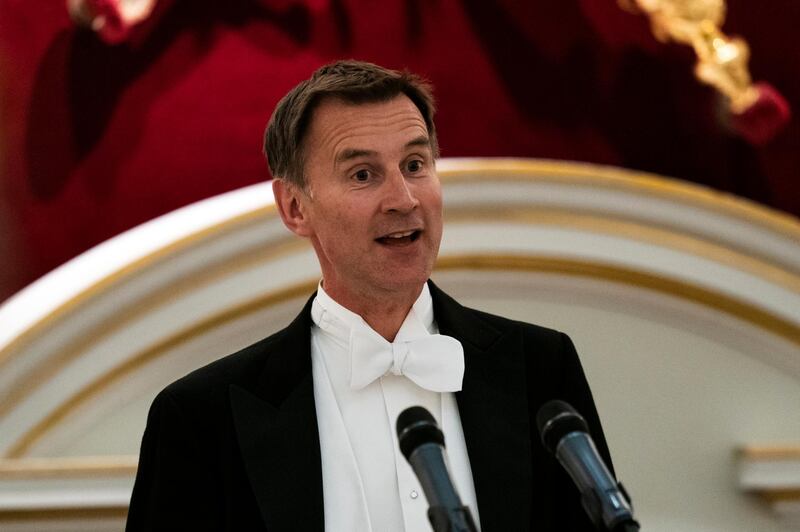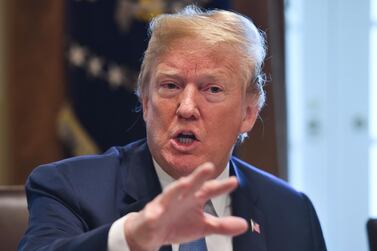Britain’s Foreign Secretary has called for a dramatic increase in defence spending in a rousing speech that appeared aimed at winning the support of Tory members for a future leadership contest.
Jeremy Hunt praised the military might of the US under Donald Trump, calling it “our great ally”, during a speech at Mansion House in London on Monday.
“The threat picture, so dramatically reduced at the end of the Cold War, has changed markedly," Mr Hunt said.
"We are in a multipolar world without the assurance provided by unquestioned American dominance. We face a more aggressive Russia and a more assertive China.
"We simply do not know what the balance of power in the world will be in 25 years’ time.
“I believe it is time for the next strategic defence and security review to ask whether, over the coming decade, we should decisively increase the proportion of GDP we devote to defence.
“Any additional funds would, of course, need to be for new capabilities and not simply plugging gaps in existing plans.”
The UK’s current defence budget is about £36 billion (Dh171.28bn) and has been relatively stable over the past five years.
The country has contributed more than 2 per cent of its GDP to Nato spending in the past eight years. Since 2010, only the UK and five other member states have ever achieved this target.
Mr Hunt said that it was not sustainable to expect one Nato ally, the US, to spend nearly 4 per cent of its GDP on defence while others spend between 1 and 2 per cent.
He also said that artificial intelligence could help transform warfare.
“The conflicts of tomorrow could well start with a cyber attack, then escalate into precision strikes by hypersonic missiles followed by swarms of unmanned aircraft,” Mr Hunt said.
He said a significant increase in defence spending would show that Britain stood to protect democratic values and would not leave the US “to perform this task alone”.
Mr Hunt said Britain's democracy was damaged and that Parliament needed renewal.
He said he wanted the UK to become the centre of the Fourth Industrial Revolution and for artificial intelligence.
Mr Hunt is one the candidates interested in becoming the next leader of the Conservative Party as the prospect of a general election looms.
Although Britain's next general election is scheduled for May 2022, many anticipate it as soon as this summer as MPs call for embattled Prime Minister Theresa May to step down and the Tory leadership battle escalates.
Michael Gove, Boris Johnson, Andrea Leadsom and Amber Rudd are among other Conservatives who look likely to run for leadership.
Last week, Mrs Leadsom went as far to say she was “seriously considering” running to succeed Mrs May, but said she would support her first to deliver Brexit.
Mrs Leadsom previously ran for leadership in 2016, but withdrew from the race after sparking controversy with comments on motherhood she made in a newspaper.







